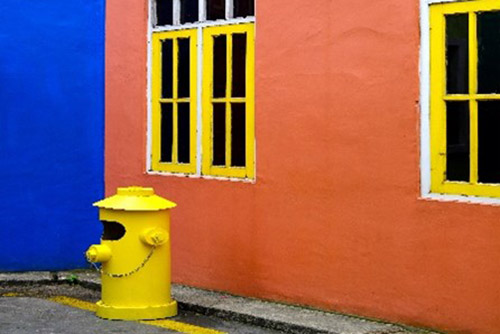FSMK Conference Transforming Media and Communication Ecologies
We invite you to participate in FSMK’s annual conference for 2024 at the School of Education and Communication (HLK), Jönköping University.
Click here for more information regarding the schedule, registration and hotel accommodation.
Registration is closed.
Registration venue Arken, HLK Gjuterigatan 5, Jönköping External link, opens in new window.
Conference rooms HLK Hb116, Ha110, Ha108
Lunch Orangeriet (HLK)
Dinner Grand Hotel Jönköping External link, opens in new window.
Conference hotel –Grand Hotel Jönköping, special rate, booking code FSMK24, via email
Booking deadline 17 March 2024.
Theme
We live with constantly transforming media ecologies. Artificial intelligence, human-machine communication and machine learning is but the latest of developments in an always moving environment. The shock of the old and the new co-exist in media and communications. This FSMK24 conference is a shared space for us to dialogue and reflect on our everyday research and education practices, with special focus on transforming media and communication education, research and industry ecologies.

Photograph Zaki Habibi
These three elements of media and communication ecologies co-exist in Nordic contexts. There are educational ecologies within media and communication Swedish higher education environments, including organizational structures, state and policy contexts and various remits for national and international undergraduate, postgraduate and doctoral education. There are also research ecologies across media and communications and other subject areas, for example intersections with gender, anthropology, political science, sociology and arts and humanities. And there are industry ecologies developing professional practice in media industries and other sectors, e.g. arts and culture, or digital and business sectors.
Invited Keynote Speakers
Espen Ytreberg
Espen Ytreberg is Professor of Media Studies at the Department of Media and Communication, University of Oslo. He researches media history and theory, and publishes literary nonfiction. His latest major academic publications are A Social History of the Media (4th edition with Asa Briggs and Peter Burke, Polity Press, 2022) and Media and Events in History (Polity Press, 2023).
Title: How mediated events have created environments
The great and minor events of history have long taken place in thoroughly mediated environments. Today’s virtual studios and social media layouts are in this sense new twists to an old tale, that of how media have taken on environmental functions of both infrastructural, social, temporal and spatial kinds. The talk traces the historical emergence of media environments for two kinds of large-scale events: planned ones such as conquests and exhibitions, and media-planned ones such as stadium concerts and Eurosong. It is argued that in all these event-cases, albeit by different technological means, media perform essential environing functions.
The talk follows on from a recent book (Media and Events in History, Polity Press 2023) that proposes seeing large-scale events not merely as a class of media output but as a main building block of contemporary societies. Mediation is how events can be built on a society-wide scale, and this construction work has been going on at least since the advent of industrialisation. The book bridges history and media studies in order to present this broader and deeper view of what events are and do.
Espen Ytreberg is Professor of Media Studies at the Department of Media and Communication, University of Oslo. He researches media history and theory, and publishes literary nonfiction. His latest major academic publications are A Social History of the Media (4th edition with Asa Briggs and Peter Burke, Polity Press, 2022) and Media and Events in History (Polity Press, 2023).
Kari Andén Papadopoulos (Stockholm University)
Göran Bolin (Södertörn University)
Stina Bengtsson (Södertörn University)
Annette Hill (Jönköping University)
Funding
Funders for this conference include FSMK and HLK.

